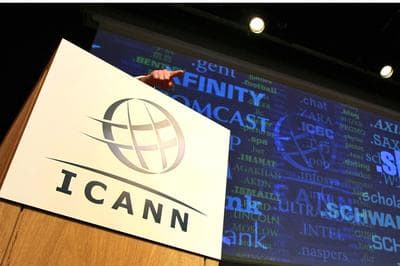Advertisement
Pushback On The United States' Internet Role
ResumeIn the wake of NSA spying revelations, a global push to move the United States out of its leading role in overseeing the Internet.

The United States was there early and deep in the creation of the Internet. That put the US in the catbird seat in influencing and overseeing the shape of the Internet. Gave America what’s been called “de facto control” over the global Internet, and encouraged the openness and freedom the US likes to champion as its own values. Then came the flood of reports of America’s big spy agency, the NSA, trampling all over the web. Hacking it to spy all over. And angry international reaction. It’s blazing now. Up next On Point: the new global push to strip the United States of its leadership role in the Internet.
-- Tom Ashbrook
Guests
Milton Mueller, professor at the Syracuse University School of Information Studies, author of "Networks and States: The Global Politics of Internet Governance" and "Ruling the Root: Internet Governance and The Taming of Cyberspace." (@miltonmueller)
Sascha Meinrath, vice president of the New America Foundation and director of the Open Technology Institute. (@saschameinrath)
Fadi Chehadé, President and CEO of ICANN, the Internet Corporation for Assigned Names and Numbers. (@icann_president)
From Tom's Reading List
The Atlantic: What Does It Mean for the U.S. to 'Lose Control of the Internet?' -- "Right now, the Internet is governed by a set of organizations with diverging responsibilities. The Internet Corporation for Assigned Names and Numbers (ICANN) helps assign domain names and top-level domains (the letters, like '.com' or '.org,' that come after the dot). Two other groups develop the standards for how information is shared and displayed through the Internet and on the web. And five regional Internet address registries assign IP addresses to Internet-connected devices."
AllThingsD: What Last Week’s Anti-U.S. Shift in Internet Governance Means to You — "Last week a group of the Internet’s governing organizations announced they were effectively turning their backs on the United States. The heads of ICANN, the Internet Engineering Task Force, the Internet Architecture Board, the World Wide Web Consortium and the Internet Society, backed by the heads of the regional registrars for global top-level domains, issued a statement calling for the 'acceleration of the globalization' of the functions carried out by ICANN and IANA."
Slate: We Can’t Let the Internet Become Balkanized -- "Rousseff’s move could lead to a powerful chorus—one that would transform the Internet of the future from a global commons to a fractured patchwork severely limited by the political boundaries on a map. Brazil is one of a handful of countries—including Indonesia, Turkey, and India—that have wavered in the debate over whether to develop an international framework to govern the Internet, one that would replace the role that the United States has played as chief Internet steward."
This program aired on October 21, 2013.